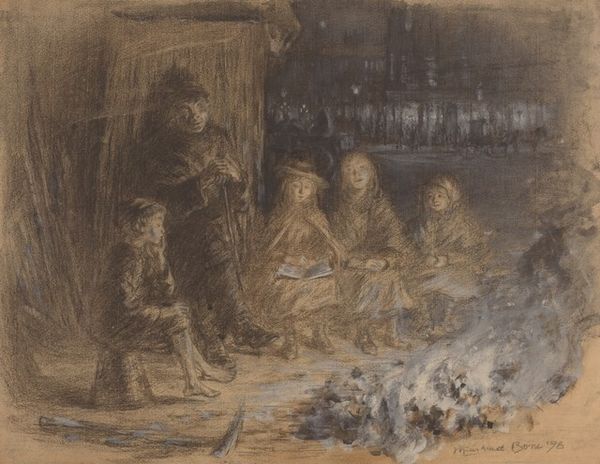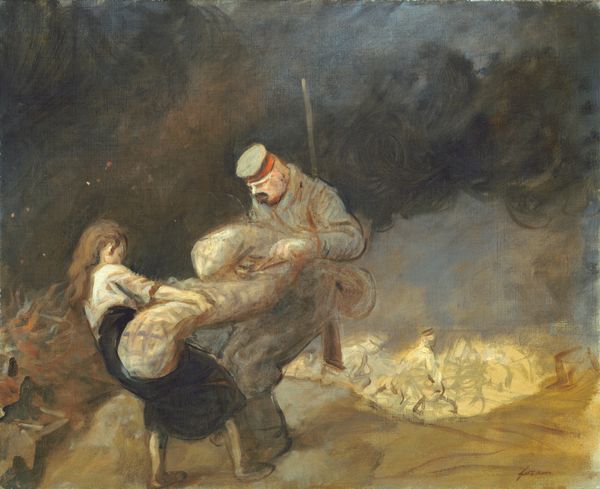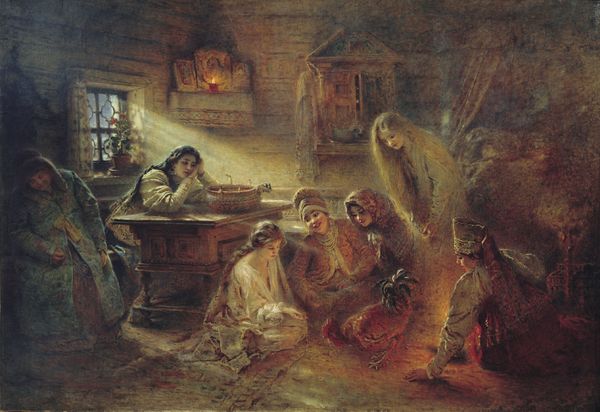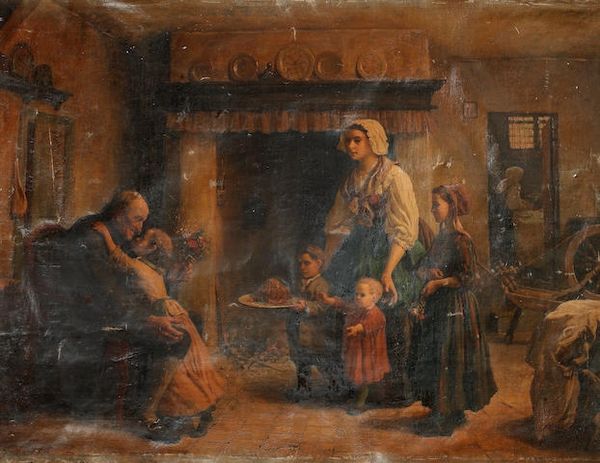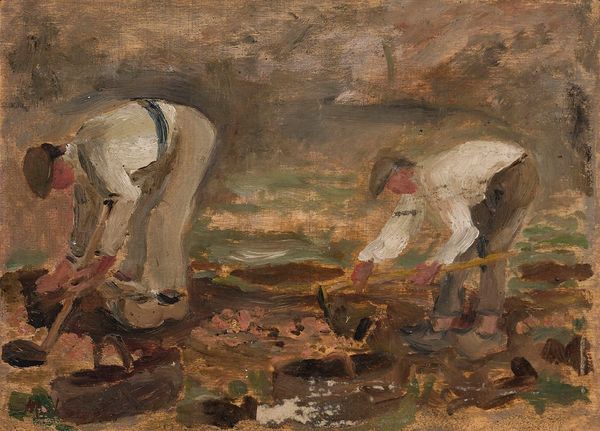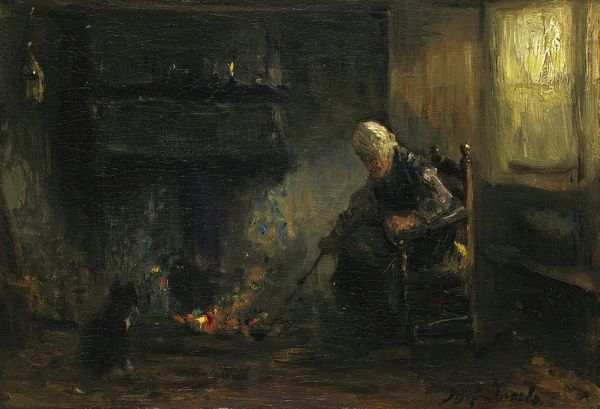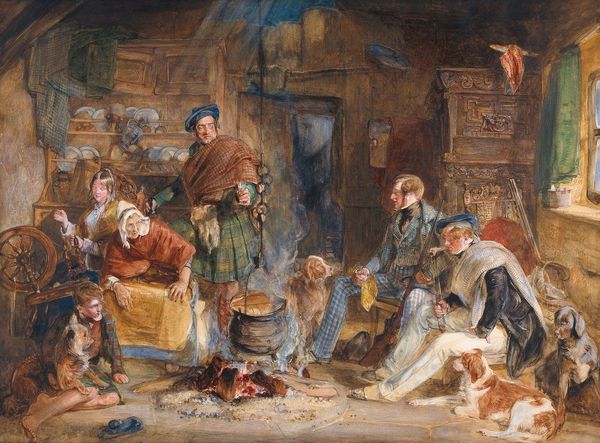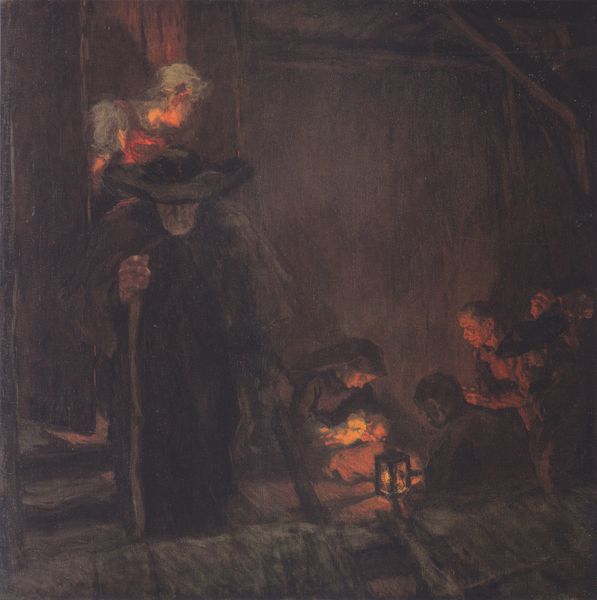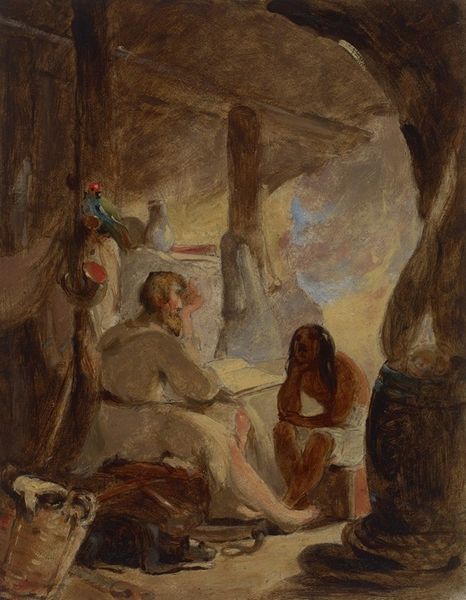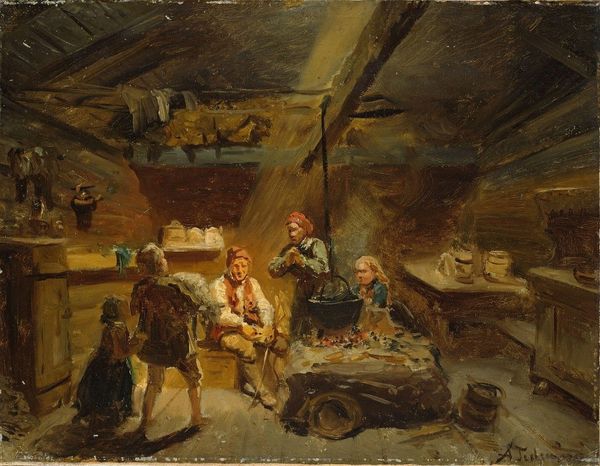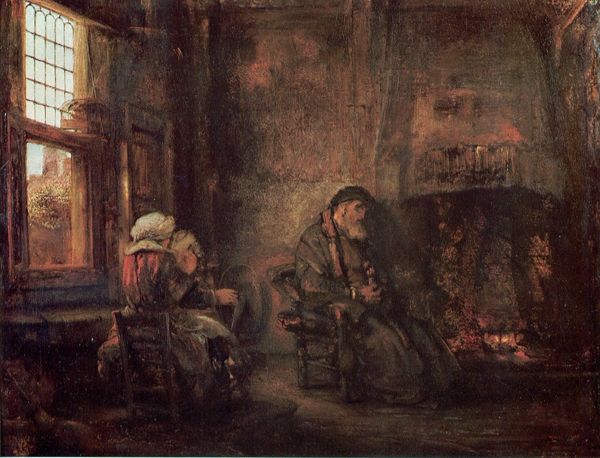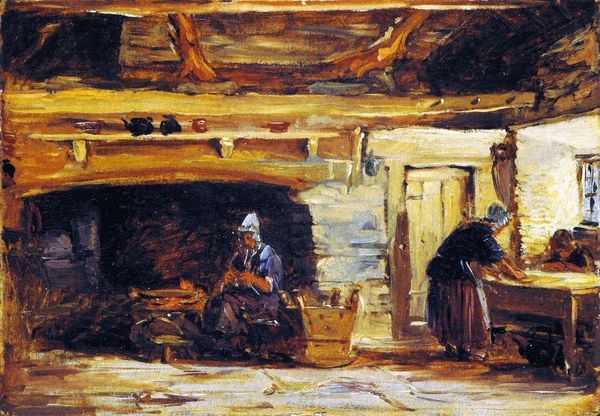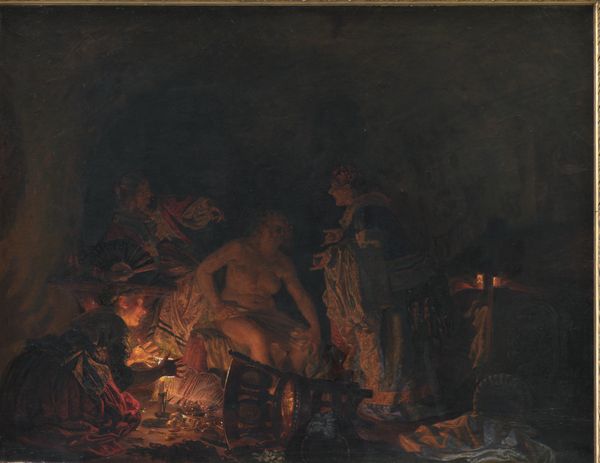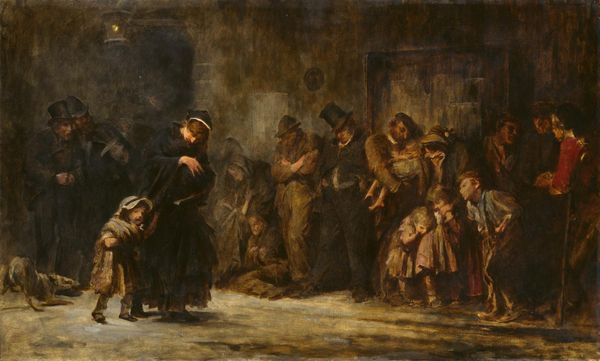
painting, oil-paint
#
painting
#
oil-paint
#
figuration
#
oil painting
#
group-portraits
#
genre-painting
Copyright: Public Domain: Artvee
Editor: We're looking at "Pork Heating," an oil painting by Tadeusz Makowski, from 1920. The initial impact is striking. There's a certain rawness in the brushwork that amplifies the scene's intensity, its directness. What can you tell us about the visual strategies at work here? Curator: Indeed, the directness you note stems from Makowski's skillful deployment of several formal elements. Note how the impasto—the thick application of paint—renders a tangible texture to the pig's carcass and the surrounding figures. This deliberate emphasis on materiality confronts us, the viewers, with the bluntness of the act portrayed. Further, consider the composition. The bright blaze at the painting’s center establishes not only the physical focal point, but is it also the compositional, with other figures clustered around and balanced to each side. The muted palette amplifies the sudden eruption of saturated reds and oranges, dramatizing that area of focus. What do you make of that colour? Editor: I'm drawn to the intensity that burst of fire brings. It is positioned in stark contrast against the neutral tones, as you mention. Does the limited palette and those quick, expressive strokes somehow inform meaning? Curator: Absolutely. These elements are not merely aesthetic choices; they serve a profound purpose. Consider how the painting lacks sharply defined outlines. Shapes merge, bleed into one another. This evokes not a static rendering but rather a sensation of movement, and perhaps the flurry of action in preparing meat. Note too that Makowski refrains from idealizing these figures; we glimpse a slice of agrarian life, unflinchingly observed. He’s focusing us in on the essentials of rural, working class life and how a lack of clear forms or hard outlines represents these processes as essential but base. Editor: That is helpful, I am seeing that now. I initially viewed it solely in terms of composition and now have a more complex view. Thank you! Curator: My pleasure, reflecting in tandem as enriched us both, wouldn’t you agree?
Comments
No comments
Be the first to comment and join the conversation on the ultimate creative platform.
